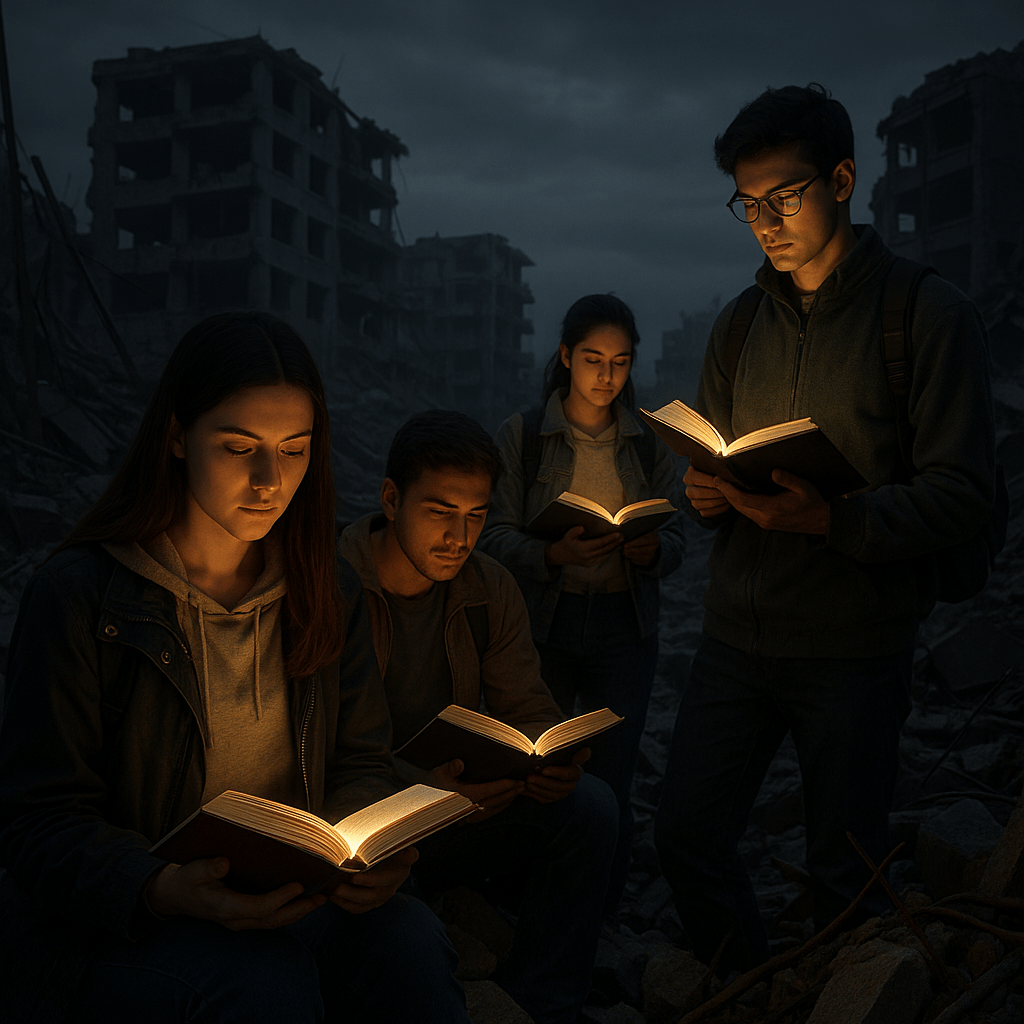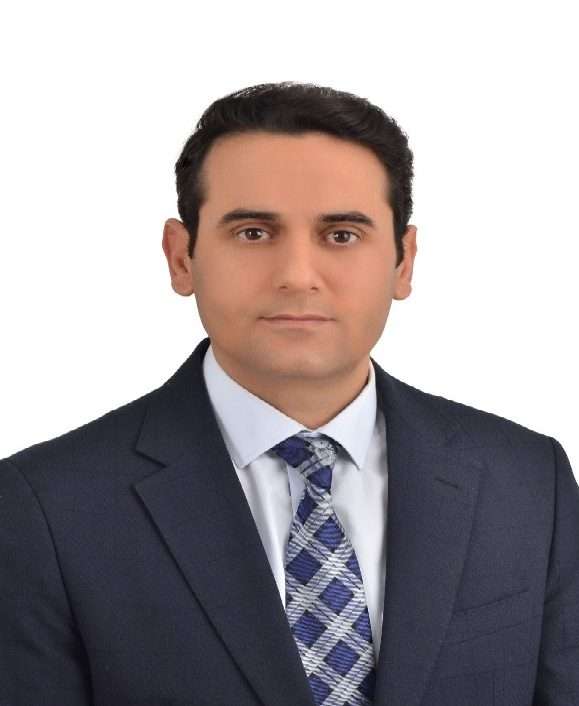When the earth shook violently across Turkey in February 2023, millions were displaced, more than 53,000 lives were lost, and entire cities were reduced to rubble. Yet, the devastation extended far beyond collapsed buildings and fractured roads. For young people caught in the chaos, the earthquake unleashed a hidden crisis: trauma that lingers long after the tremors have ended.
A new study led by Davut Atılgan, from the Faculty of Sport Sciences at Kahramanmaraş Sütçü İmam University, published in the journal Natural Hazards, reveals a powerful link between earthquake knowledge and psychological resilience. The findings suggest that students who possessed greater awareness of earthquakes were better equipped to withstand the emotional and cognitive toll of the disaster.
The research, conducted among 434 sport sciences students in Turkey, sheds light on how preparedness is not only a matter of survival but also a determinant of mental health in the aftermath of catastrophe. In a world increasingly plagued by natural disasters, the study provides timely lessons that resonate far beyond Turkey’s borders.
A disaster of the century
On 6 February 2023, two major earthquakes measuring magnitude 7.7 and 7.6 struck Kahramanmaraş in southern Turkey. The disaster spanned an area equivalent to the size of 113 countries and directly affected 14 million people. According to the Republic of Turkey Strategy and Budget Department, more than 107,000 individuals were injured, and over 53,500 lives were lost.
This event, often referred to as the “disaster of the century,” not only shattered infrastructure but also destabilised the psychological foundations of communities. Survivors endured trauma characterised by fear, helplessness, and relentless anxiety. For students, many of whom were just beginning their adult lives, the earthquakes created profound disruptions in education, community ties, and mental well-being.
The study focused specifically on sport sciences faculties in four universities located in the impacted region: Kahramanmaraş Sütçü İmam University, Gaziantep University, İnönü University in Malatya, and Adıyaman University. These students represent a diverse academic community that is particularly relevant because of their potential future role in public education, physical health, and community engagement.
Linking knowledge with resilience
The research employed two validated tools: the Earthquake Knowledge Assessment Scale (EKAS) and the Scale for Determining the Level of Post-Earthquake Trauma (SDLPT). Data were collected in two phases, beginning in March 2023, just one month after the earthquakes, and continuing until December 2023.
Findings were striking. In the first stage, students reported only medium levels of earthquake knowledge but very high levels of trauma. By the second stage, knowledge scores had increased, while trauma scores declined. The correlation was clear: the more informed students were about earthquakes, the less traumatised they felt in the aftermath.
Statistical analysis confirmed this relationship. Students with higher knowledge of earthquake effects, regional distribution, and preparedness strategies scored significantly lower on trauma indicators such as behaviour problems, emotional distress, and sleep disruption. Path analysis revealed that earthquake education predicted reduced emotivity, fewer cognitive distortions, and better sleep quality.
Gender and trauma
One of the most notable findings was the difference between male and female students. Female participants consistently reported higher trauma scores across all categories, including affective symptoms, behavioural problems, cognitive challenges, and sleep issues.
This aligns with broader research in Turkey and globally, suggesting that women are more vulnerable to post-disaster stress. Cultural and social factors may play a role, as women in the affected regions often spend more time at home, where risk of being trapped or injured is higher. Protective instincts, caregiving roles, and social fragility may further heighten vulnerability.
Researchers argue that disaster response must account for gender-specific needs. Psychological support programmes, targeted interventions, and inclusive disaster preparedness education could reduce these disparities in future crises.
Unequal knowledge across universities
Not all students had the same levels of knowledge or trauma. Those enrolled at Gaziantep University demonstrated significantly higher earthquake knowledge scores and lower trauma levels compared to peers in Kahramanmaraş, Malatya, and Adıyaman.
Why the difference? Researchers suggest that Gaziantep students may have benefited from greater access to earthquake-related publications and awareness campaigns. Furthermore, while districts in Gaziantep were affected, the destruction was less catastrophic compared to cities such as Kahramanmaraş, where damage and fatalities were extensive.
This finding highlights the uneven distribution of preparedness across regions. It also suggests that proximity to educational resources and targeted communication can significantly influence resilience in disaster-hit populations.
Field of study shapes preparedness
The research also revealed variations across different departments within the faculties of sport sciences. Students specialising in sports management scored significantly higher in earthquake knowledge and lower in trauma compared to peers in physical education teaching, coaching, or adapted physical activity programmes.
One explanation is that sports management students typically have stronger academic backgrounds and are more exposed to management-oriented training. Their curriculum may have cultivated a mindset of strategic planning and risk awareness, enabling them to apply this thinking to disaster contexts.
By contrast, students admitted through talent-based entrance exams in other fields may have had less exposure to such frameworks, resulting in lower preparedness. This finding underscores the importance of integrating disaster education into diverse academic curricula.



Science behind the stress
The relationship between knowledge and trauma was not only intuitive but quantifiable. Correlation analysis showed negative associations between earthquake knowledge and all five trauma dimensions: behaviour problems (r = −0.48), emotivity (r = −0.43), affective symptoms (r = −0.45), cognitive disruptions (r = −0.28), and sleep problems (r = −0.33).
Path analysis provided further insights. Knowledge of earthquake regions predicted lower emotional sensitivity and better cognitive stability. Knowledge of earthquake effects predicted fewer behavioural problems. Education-specific knowledge predicted reduced emotivity and sleep disturbances.
In essence, informed students were not just less frightened, they demonstrated measurable resilience across emotional, cognitive, and behavioural domains. This suggests that disaster education is not merely informational but also therapeutic in its impact.
A global call for preparedness
The Turkish earthquakes are not isolated. Earthquake-related trauma has been observed in Nepal, Haiti, Japan, Morocco, and elsewhere. With global population growth and increasing urban density in seismic regions, millions remain vulnerable.
This research echoes lessons from other disasters: preparedness saves lives and protects mental health. Yet, surveys consistently show that even in earthquake-prone countries, only a small fraction of citizens feel adequately prepared. In Turkey, just 6.2 percent of participants in a pre-2023 survey reported feeling ready for an earthquake.
The findings of Atılgan and colleagues highlight the urgent need for structured disaster education programmes in universities and schools. Beyond physical survival, knowledge builds psychological armour that enables individuals and communities to recover more swiftly.
Education as psychological first aid
The study recommends that psychological support be delivered promptly after disasters. However, it also stresses that education is a preventive tool that equips individuals with confidence and coping mechanisms before crises strike.
Preparedness training can address both practical actions, such as safe evacuation routes and first aid, and psychological resilience, teaching individuals how to manage fear, uncertainty, and stress. Authorities are encouraged to invest in widespread disaster education campaigns, integrated curricula, and active simulation exercises.
Without such efforts, societies risk not only physical devastation but also prolonged psychological suffering that undermines long-term recovery.
Lessons for policymakers
The research highlights key takeaways for governments, universities, and humanitarian organisations:
- Disaster preparedness should be integrated into higher education, particularly in regions prone to seismic activity.
- Gender-sensitive interventions are necessary to protect vulnerable groups.
- Resource allocation and aid distribution must be better coordinated to address disparities across regions.
- Knowledge-sharing initiatives, including digital platforms and social media, can boost awareness among younger populations.
By prioritising knowledge as a form of resilience, policymakers can ensure that the next generation is not paralysed by fear when disaster strikes.
Beyond Turkey’s borders
The 2023 Kahramanmaraş earthquakes revealed vulnerabilities but also pathways to resilience. Students who understood earthquakes suffered less emotionally, cognitively, and behaviourally. Their experience underscores a vital truth: informed communities are stronger communities.
As the world faces mounting natural hazards, disaster education is no longer optional. It is a form of psychological first aid, a buffer against trauma, and a crucial step towards safeguarding future generations.
Reference
Atılgan, D., & Öztürk, O. (2025). Earthquake knowledge level and post-earthquake trauma: A study on sport sciences faculty students. Natural Hazards, 121, 1865–1884. https://doi.org/10.1007/s11069-024-06889-3







